25 songs of civil rights, social justice, freedom and hope for Black History Month 2024
Martin Luther King Jr. had a deep respect for music as an instrument of change.
The March on Washington in 1963, where King delivered his "I Have a Dream" speech, featured live performances by Peter, Paul and Mary, Harry Belafonte, Marian Anderson, Mahalia Jackson, Joan Baez and Bob Dylan, just to name a few.
In a piece he wrote for the 1964 Berlin Jazz Festival, King had this to say about the role of music in our lives:
"God has wrought many things out of oppression. He has endowed his creatures with the capacity to create, and from this capacity has flowed the sweet songs of sorrow and joy that have allowed man to cope with his environment and many different situations."
Music clearly played a starring role in the civil rights movement. People marched to freedom songs while artists from Sam Cooke to Dylan took the message to the masses in recordings as enduring as "A Change is Gonna Come" and "Blowin' in the Wind."
King considered the Impressions' song "People Get Ready" the unofficial anthem of the civil rights movement.
Many of the songs that people marched to in the '60s have retained their relevance, with people singing "We Shall Overcome" in the streets as recently as 2020.
And people are still adding new songs to that folk tradition, from Lauryn Hill's "Black Rage," to Kendrick Lamar's "Alright," a hip-hop song that emerged as a popular choice for people marching for their rights at Black Lives Matter protests.
Here's a look at 25 of the most enduring civil rights songs, from the song known as the Black National Anthem, "Lift Every Voice and Sing," and Billie Holiday's "Strange Fruit" to Lamar's "Alright."
Get Ready: The Temptations' 25 greatest songs of all time, ranked
25. Arrested Development, 'Revolution' (1992)
These alternative hip-hop heavyweights recorded "Revolution" for use in the Spike Lee biopic on Malcolm X, who earns a shout-out here alongside Marcus Garvey and Harriet Tubman, among other social activists. The track begins with a spoken dedication to "all my ancestors who were raped, who were killed and hung because of their plight for freedom and for dignity." Aerle Taree takes the first verse, rapping, "I have marched until my feet have bled/And I have rioted until they called the feds/'What's left?,' my conscience said." What's left is revolution. As Speech frames the issue, "There's got to be action/If you want satisfaction/If not for yourself/For the young ones."
Interview: From Keith Richards' hotel room to 'Strong Persuader': Robert Cray on his career highs
24. The Game, 'Don't Shoot' (2014)
In response to the fatal shooting in Ferguson, Missouri, of an unarmed Black man, Michael Brown, by a white police officer, the Game recruited an all-star cast of fellow rappers to join him in this poignant protest track. DJ Khaled sets the tone with a prayer for protection "as we keep our hands up high and scream for justice." And after a fiery final verse from Problem, who's tired of screaming and ready to rage, the Game passes the mic to his daughter for one final chorus, her young voice adding to the chilling impact. "Time to take a stand and save our future like we all got shot, we all got shot," she sings. "Throwing up our hands, don't let them shoot us 'cause we all we got, we all we got. God ain't put us on the Earth to get murdered, it's murder." Then, after repeating that line about murder, she ends with a simple request: "Don't point your weapons at me."
23. Marvin Gaye, 'Inner City Blues (Make Me Holler)' (1971)
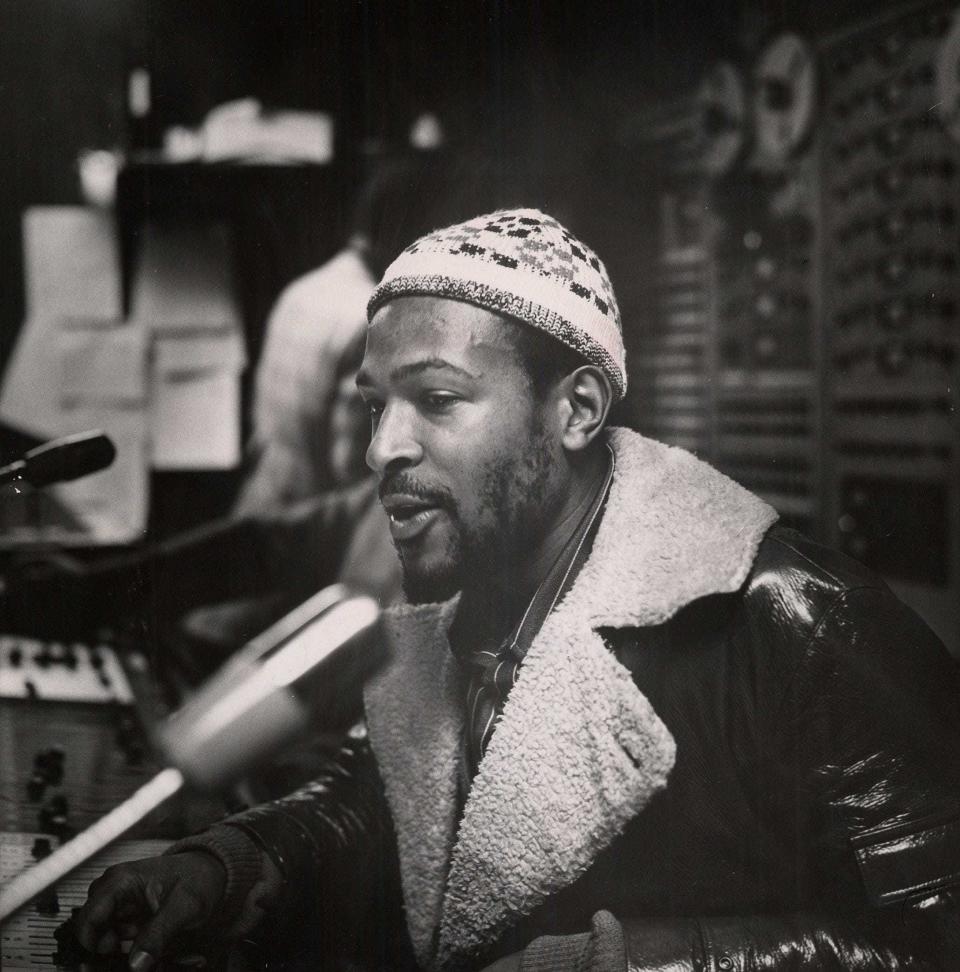
"What's Going On" was perhaps the socially relevant album of its era, a soulful song cycle that finds the Motown star responding to a litany of social ills, from poverty to drug abuse, environment issues and the war in Vietnam. On "Inner City Blues (Makes Me Wanna Holler)," the singer speaks directly to the economic disparity experienced by those struggling to carve out a life for themselves in America's inner cities while questioning the government's priorities. In the opening verse, he sets the tone by rhyming "Rockets, moon shots" with a call to "spend it on the have-nots." In the second verse, he sings of families sending children off to war as a way to make ends meet. And before the song is through, he weighs in on the "trigger happy policing" in response to crime increasing when desperate people turn to crime as solution to their economic problems.
'Funky Broadway' exclusive: How 1 night at a Phoenix Elks Club changed the history of funk
22. Nina Simone, 'To Be Young, Gifted and Black' (1970)
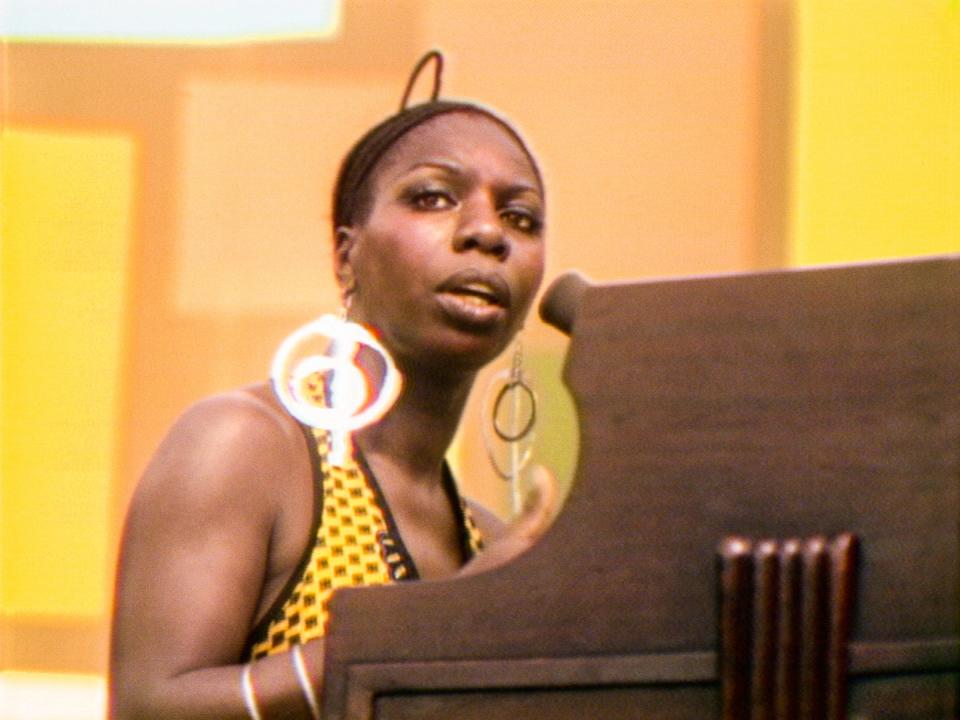
Nina Simone has said she and her musical director Weldon Irvine hoped to write a song that would inspire young black children all over the world to feel good about themselves and celebrate their blackness. That's exactly what this song accomplishes, a joyous gospel tune that tells those children, "In the whole world you know there are a million boys and girls who are young, gifted and Black. And that's a fact!" Simone's song shares a title with a play about the life of Lorraine Hansberry, a friend of hers who wrote "A Raisin in the Sun," the first show on Broadway to be written by a Black woman. Within two years of the song's release, Aretha Franklin and Donnie Hathaway had both recorded their own versions.
'An imperfect weapon': How the musicians' boycott of Arizona over SB 1070 fought the power
21. The Staple Singers, 'I'll Take You There' (1972)
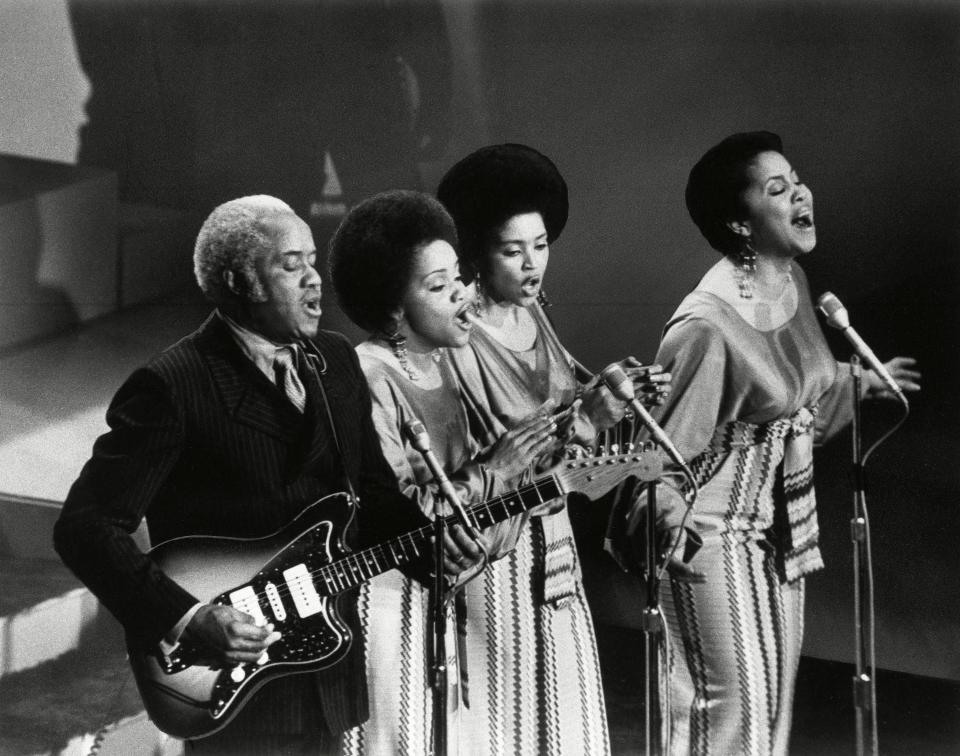
This gospel-flavored funk jam finds the Staple Singers dreaming of a better place where "ain't nobody cryin', ain't nobody worried, ain't no smilin' faces lyin' to the races" with an oft-repeated chorus hook that promises to "take you there." There's really not much else to say, so they just ride the groove out, testifying their way to salvation, performed as a call-and-response with occasional breaks for instrumental solos. The song was written by Stax Records president Al Bell and inspired by the fatal shooting of his younger brother, the third sibling he'd lost to gun violence.
20. Bob Marley, 'Redemption Song' (1981)
The final track on the final album Bob Marley recorded before his death in 1981, this intimate solo acoustic recording begins with a reference to Africans being sold as slaves to merchant ships. The chorus asks the listener "Won't you help to sing these songs of freedom?" And the second verse finds Marley referencing a speech by Marcus Garvey, urging listeners to "Emancipate yourselves from mental slavery / None but ourselves can free our minds." Like many of the freedom songs the chorus references, "Redemption Song" responds to the pain of oppression with a spiritual promise of better days to follow. "But my hand was made strong by the hand of the Almighty," Marley sings. "We forward in this generation triumphantly."
19. The Roots, 'Ain't Gonna Let Nobody Turn Me Around' (2012)
This organ-driven reinvention of the spiritual "Ain't Gonna Let Nobody Turn Me Around" was the Roots' contribution to "Soundtrack For a Revolution," a 2012 compilation of contemporary artists doing traditional Civil Rights-era freedom songs (with an assist from Brooklyn art-rock legends TV on the Radio. The music video offsets black-and-white footage of 20th-century protests with full-color clips of The Roots performing in the studio. Like many freedom song of the era, it's designed to be easily learned and sung at marches, a single refrain with slightly altered lyrics each time it's repeated, each chorus building to the same conclusion, which in this case is, "I'm gonna keep on a-walkin', keep on a-talkin' / Marchin' on to freedom land."
18. Kendrick Lamar, 'Alright' (2015)
This highlight of "To Pimp a Butterfly" had emerged by the end of 2015 as what the New York Times declared "the unifying soundtrack to Black Lives Matter protests nationwide." In that same article, Lamar told the Times he could see what the kids who were chanting his song in the streets were hearing. "Simple phrase," he said. "We gon' be alright. It's a chant of hope and feeling." Although many of the struggles he addresses in the song are on a more personal scale than systemic oppression, "Alright" is one of three times on the album he references the 40 acres and a mule that formerly enslaved people were promised but didn't receive when the Civil War ended. And he touches on the root cause of those Black Lives Matter protest with "And we hate po-po / Wanna kill us dead in the street fo sho.'"
17. Stevie Wonder, 'Living For the City' (1973)
Stevie Wonder won a Grammy for this gritty portrait of a boy who's "born in Hard Time, Mississippi, surrounded by four walls that ain't so pretty." His parents do their best to keep him moving in the right direction while working hard to barely make a dollar. But the harsh realities of living for the city, where "to find a job is like a haystack needle because where he lives, they don't use colored people," prove too much for him to bear. When someone offers him five bucks to run a package across the street, he spends the next 10 years in jail, which leaves him wandering the streets, convinced there's no solution. It's a cautionary tale that ends with a suggestion that it's up to all of us to break the cycle of systemic poverty. "I hope you hear inside my voice of sorrow," Wonder sings. "And that it motivates you to make a better tomorrow/This place is cruel, nowhere could be much colder/If we don't change, the world will soon be over."
16. Lauryn Hill, 'Black Rage' (2014)
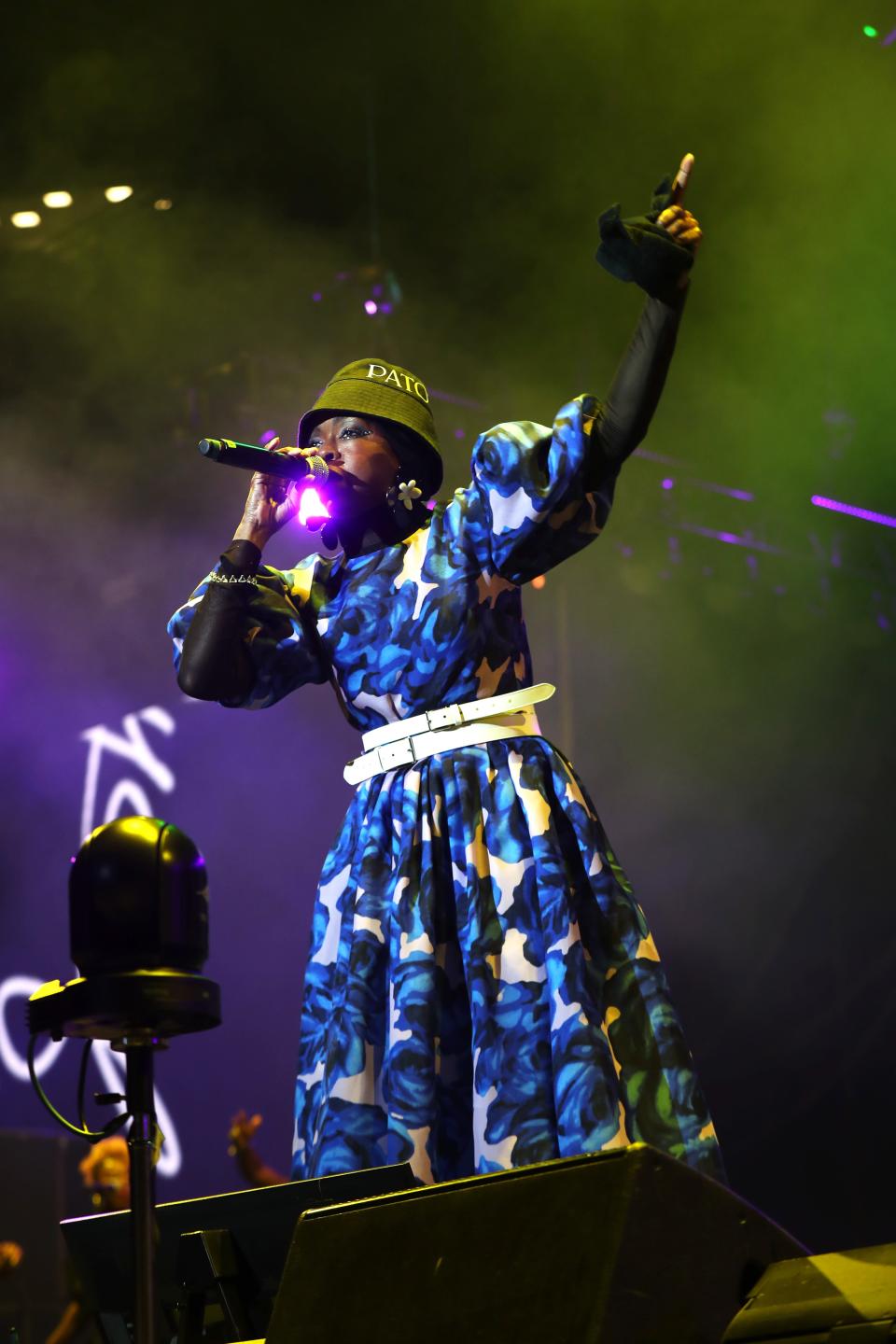
Setting her words to the tune of "My Favorite Things" on an ominous bed of hip-hop beats and acoustic guitar, Lauryn Hill traces the roots of Black rage through American history to its tragic beginnings with "Black human packages tied up in strings." She also examines the ongoing sins of systemic oppression that continue to define the Black experience for far too many people in the age of Black Lives Matter. "Black Rage is founded on blatant denial," she sings. "Squeezing economics, subsistence survival / Deafening silence and social control / Black Rage is founded on wounds in the soul." When she first shared a lo-fi recording of "Black Rage" in 2014, it was dedicated to the people fighting for racial equality in Ferguson, Missouri.
15. Pete Seeger, 'We Shall Overcome' (1963)
This was one of the civil rights movement's most popular songs, an unofficial anthem so pervasive that President Lyndon B. Johnson slipped the title phrase into a speech to Congress in March of 1965 in the wake of violent attacks on civil rights demonstrators during the march from Selma to Montgomery. Two years prior to that speech, a young Joan Baez led a crowd of 300,000 in singing the gospel song at the Lincoln Memorial during A. Philip Randolph's March on Washington. Among the more notable artists to have covered the song are Mahalia Jackson and Pete Seeger, who played a key role in weaving the gospel song into the cultural fabric as a song leader at the Highlander Folk School in Tennessee. His "We Shall Overcome" is in many ways the definitive version.
14. Fannie Lou Hamer, 'Go Tell It on the Mountain' (1963)
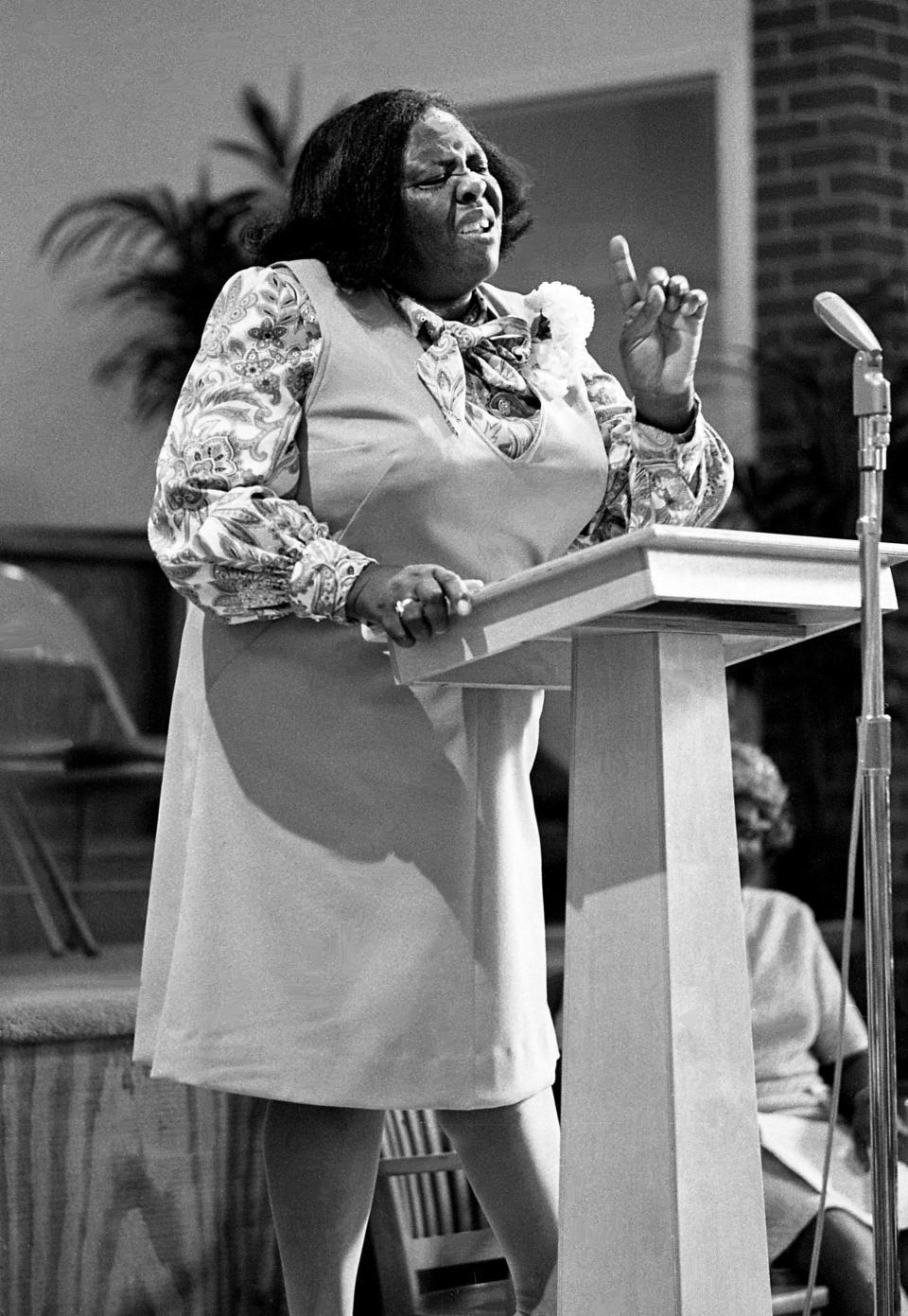
The original lyrics of this 19th Century spiritual celebrate the birth of Jesus. By the early '60s, both Fannie Lou Hamer and Peter, Paul & Mary were doing a version that subbed in "Let my people go" for "Jesus Christ is born." Hamer was deeply involved in the civil rights movement, a community organizer known for her use of spirituals who organized the Freedom Summer Project, a volunteer campaign in 1964 to register as many black voters as possible in Mississippi. Hamer's version of the song is a cappella gospel with Hamer's emotional testifying backed by handclaps and a joyous choir.
13. Sam Cooke, 'This Little Light of Mine' (1964)
The earliest known recording of this gospel song of unknown origin is a field recording done in 1934 by John and Alan Lomax of Jim Boyd at the State Penitentiary in Huntsville, Texas. It was widely used in Black churches by then and emerged as a civil rights anthem in the '50s and '60s thanks to the efforts of Zilphia Horton, Fannie Lou Hamer and Bettie Mae Fikes. It's a simple declaration of self-empowerment with an oft-repeated chorus of "This little light of mine/I'm gonna let it shine." Sam Cooke's recording on 1964's "Sam Cooke at the Copa" is especially uplifting — joyous even — serving as a perfect segue into the soul singer’s equally joyous rendition of Bob Dylan's civil rights anthem "Blowin' in the Wind."
12. Gil Scott-Heron, 'The Revolution Will Not Be Televised' (1971)
More a spoken-word performance set to music than an actual song, "The Revolution Will Not Be Televised" was written in response to the spoken-word piece "When the Revolution Comes" by the Black Poets, whose track begins with "When the revolution comes, some of us will probably catch it on TV." Gil Scott-Heron uses that line as a starting point to argue that "You will not be able to stay home, brother" when the revolution comes. "You will not be able to plug in, turn on and cop out / You will not be able to lose yourself on skag and skip out for beer during commercials." As the track goes on, he unleashes a stream of satirical pop culture references to illustrate the many ways in which the revolution will not be provided for your passive entertainment value, ending with "The revolution will be no re-run, brothers / The revolution will be live."
11. Bob Dylan, 'Blowin’ in the Wind' (1963)
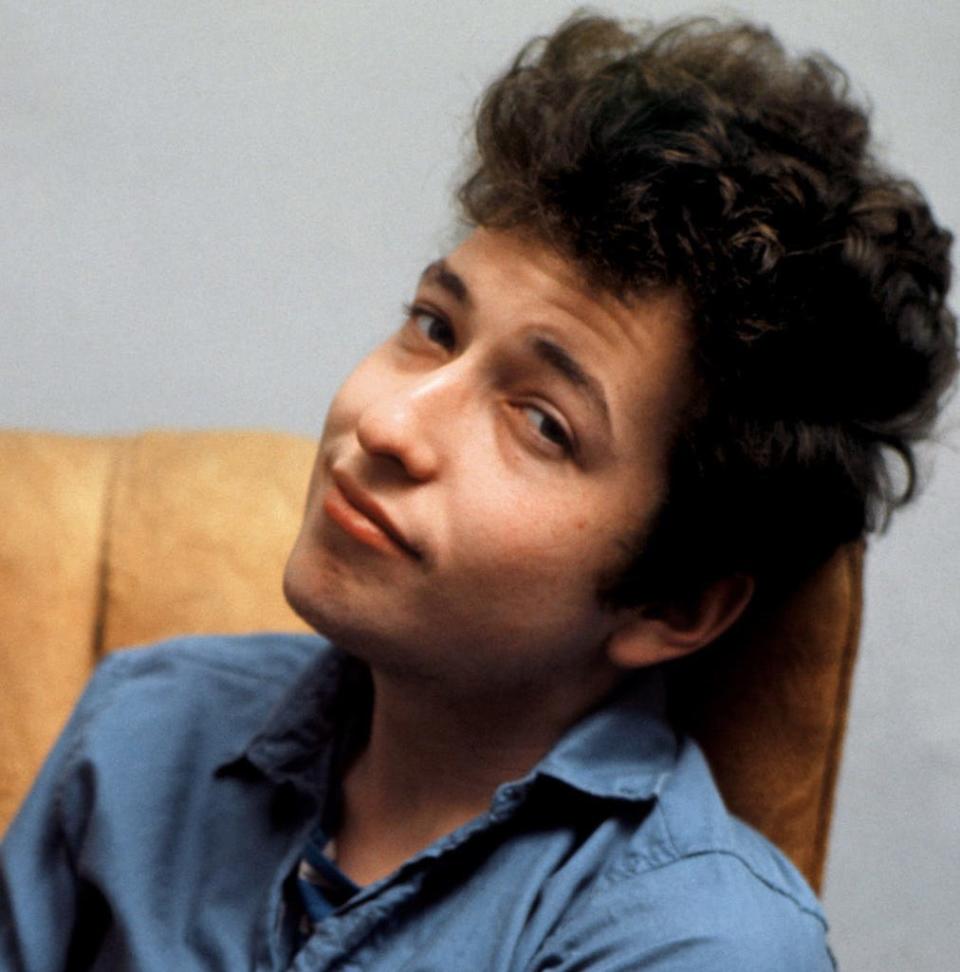
In Martin Scorsese's documentary "No Direction Home," Mavis Staples recalls her first impression of this song and how she couldn't understand how a young white man could write something that captured the frustrations of the Black experience as powerfully as Dylan does here. Sam Cooke was impressed enough to add it to his repertoire and wrote "A Change Is Gonna Come" in part because he wished that Dylan's song had been composed by a person of color. Although the lyrics aren't exclusively concerned with civil rights — in the opening verse, Dylan sings, 'Yes, and how many times must the cannonballs fly before they are forever banned — it's easy to hear how it came to be embraced as a civil rights anthem. In the opening line, he asks, How many roads must a man walk down before you call him a man?" And later, he wonders "And how many years can some people exist before they're allowed to be free?"
10. Kim Weston, 'Lift Every Voice and Sing' (1972)
Kim Weston's emotional reading of this life-affirming gospel song emerged as a defining moment of Wattstax, a concert held on the seventh anniversary of the 1965 Watts riots at Los Angeles Memorial Coliseum, where many in the crowd of more than 100,000 raised a fist in the air as she sang. The Rev. Jesse Jackson, who introduced her as "Sister Kim Weston," called "Lift Every Voice and Sing" the Black National Anthem that day. And he wasn't the first or last to call it that. Based on a poem by James Weldon Johnson and set to music by his brother John Rosamond Johnson, the song was first performed in 1900 by a choir at a segregated school in Jacksonville, Florida, as part of a birthday celebration for President Abraham Lincoln.
9. Public Enemy, ‘Fight the Power’ (1989)
This hip-hop classic was written to order for "Do the Right Thing," a Spike Lee joint from 1989 exploring racial tension in a Brooklyn neighborhood. In an interview with Time, Lee talked about how he was looking for a song to underscore the film's climactic riot scene. "I wanted it to be defiant, I wanted it to be angry, I wanted it to be very rhythmic," he said. "I thought right away of Public Enemy." Mission accomplished. Fueled by the Bomb Squad's incendiary production, Chuck D raps about fighting the powers that be with tossed-off references to James Brown, Malcolm X and their own first album. And before the song is through, he's trashed two paragons of white pop culture, Elvis Presley and John Wayne, accusing both of racism. He's since walked back his thoughts on Presley, saying it was more about the racists that anointed him the King of Rock 'n' Roll at the expense of the black artists who inspired much of what he did.
8. Mavis Staples, 'We Shall Not Be Moved' (2007)
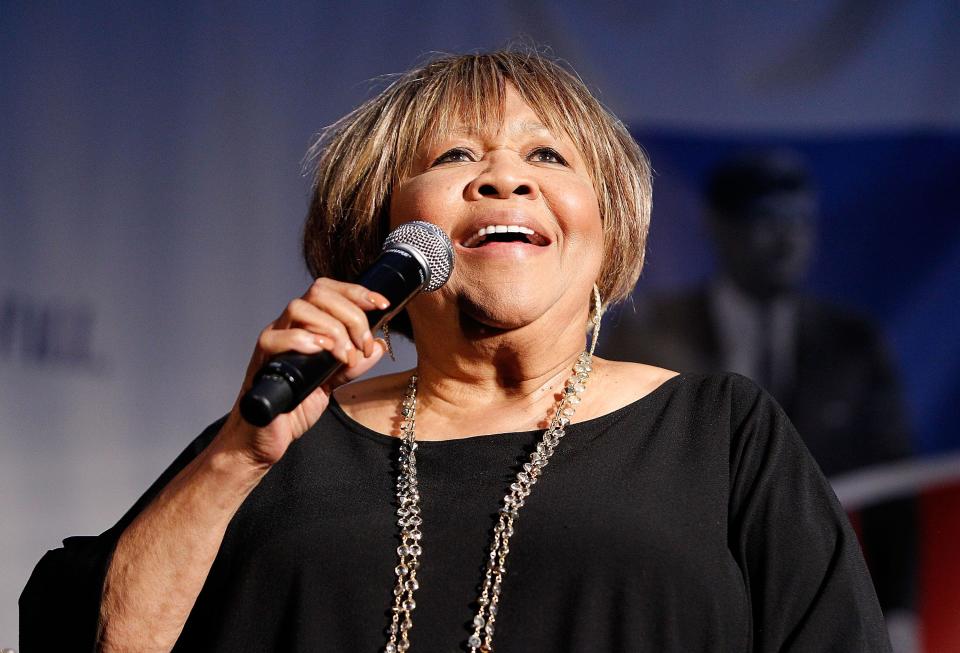
"Like a tree that's planted by the water, we shall not be moved." Several folk acts recorded this uplifting spiritual in the '50s and '60s, from England's King of Skiffle Lonnie Donegan to Pete Seeger and the Seekers. Mavis Staples slowed it down to dramatic effect on a deeply soulful rendition she cut for 2007's "We'll Never Turn Back," a concept album of songs related to the civil rights movement produced by Ry Cooder. Like many spirituals, its word are based in scripture, in this case, the Book of Jeremiah. In 2017, students at Howard University, a historically Black university, sang "We Shall Not Be Moved" to protest former FBI director James Comey taking the stage to deliver a convocation address.
7. The Staple Singers, 'Freedom Highway' (1965)
Driven by a gritty blues guitar lick and thundering handclap, "Freedom Highway" begins with a call to "March up freedom's highway/ March each and every day." And for those who may have wondered what it was that had the Staple Singers marching up that highway each and every day, they laid in on the line in more explicit terms than most: "There is just one thing I can't understand, my friend / Why some folk think freedom was not designed for all men." Mavis Staples revisited that highway on 2008's "Live: Hope at the Hideout," which also featured such civil rights anthems as "We Shall Not Be Moved" and "This Little Light of Mine."
6. Nina Simone, 'Mississippi Goddam' (1964)
Nina Simone has said she wrote this song in a rush of fury, hatred and determination upon learning of four young Black girls murdered in the bombing of the 16 Street Baptist Church in Birmingham, Alabama on Sept. 15, 1963. It was also inspired in part by the racially motivated murder that same year in Jackson, Mississippi, of civil rights activist Medgar Evers. The song was first released as a live recording on "Nina Simone in Concert," done in the style of an upbeat show tune, complete with the comic aside, "This is a show tune but the show hasn't been written for it yet." Simone has called "Mississippi Goddam" her first civil rights song, to be followed by further classics as enduring as "Four Women" and "To Be Young, Gifted and Black."
5. Bob Dylan, 'The Times They Are A-Changin' (1964)
The title track to Bob Dylan's most topical album was a deliberate attempt to write an anthem for the changing times, which is exactly what this song became. Dylan never explicitly references race in a folk song warning congressmen and senators, "The battle outside ragin' will soon shake your windows and rattle your walls." But it captured the mood of the moment, embraced by the civil rights movement, inspiring covers by Nina Simone and Odetta. In the liner notes to "Biograph," the singer explained to Cameron Crowe what he was going for: "I wanted to write a big song, with short concise verses that piled up on each other in a hypnotic way."
4. Billie Holiday, 'Strange Fruit' (1939)
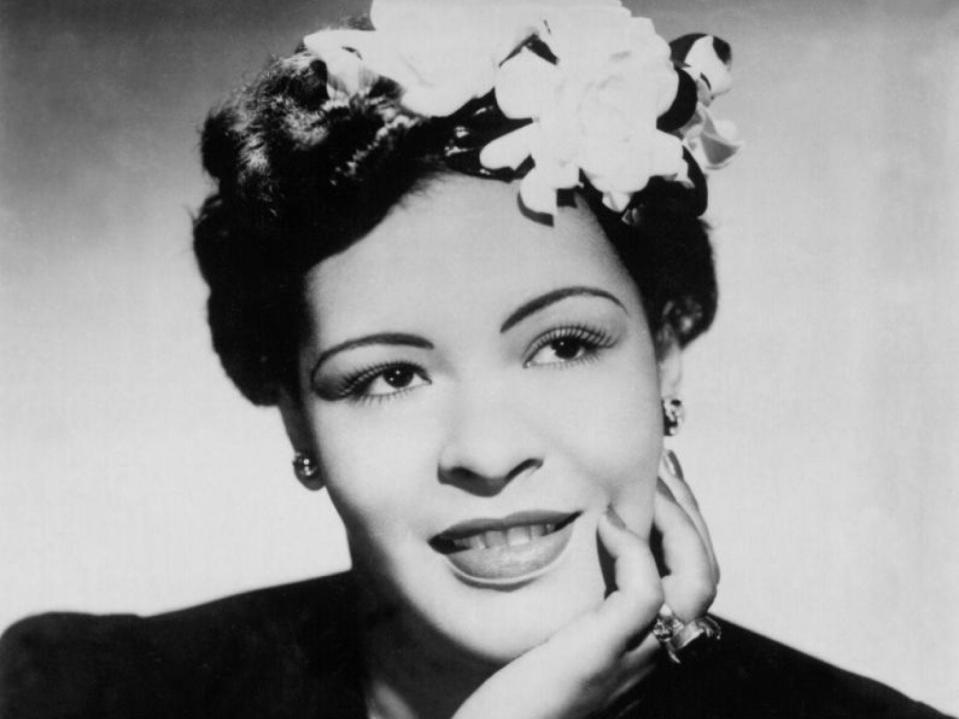
Ahmet Ertegun, the co-founder and president of Atlantic Records, once referred to Billie Holiday's "Strange Fruit," a song she first performed in early 1939, as "the beginning of the civil rights movement." Written in 1937 by Abel Meeropol, the son of Russian Jewish immigrants, it offers an unflinching portrait of the horrors of lynching as a form of racial terrorism, comparing the victims' bodies to a "strange and bitter crop." It's as unsettling as it is profound and therein lies its power, setting the scene, "Southern trees bear a strange fruit / Blood on the leaves and blood at the root / Black body swinging in the Southern breeze / Strange fruit hanging from the poplar trees." It only gets darker from there, as shocking decades later as it had to be in 1939. And Holiday's suitably chilling delivery completes the mood.
3. James Brown, 'Say It Loud – I'm Black and I'm Proud' (1968)
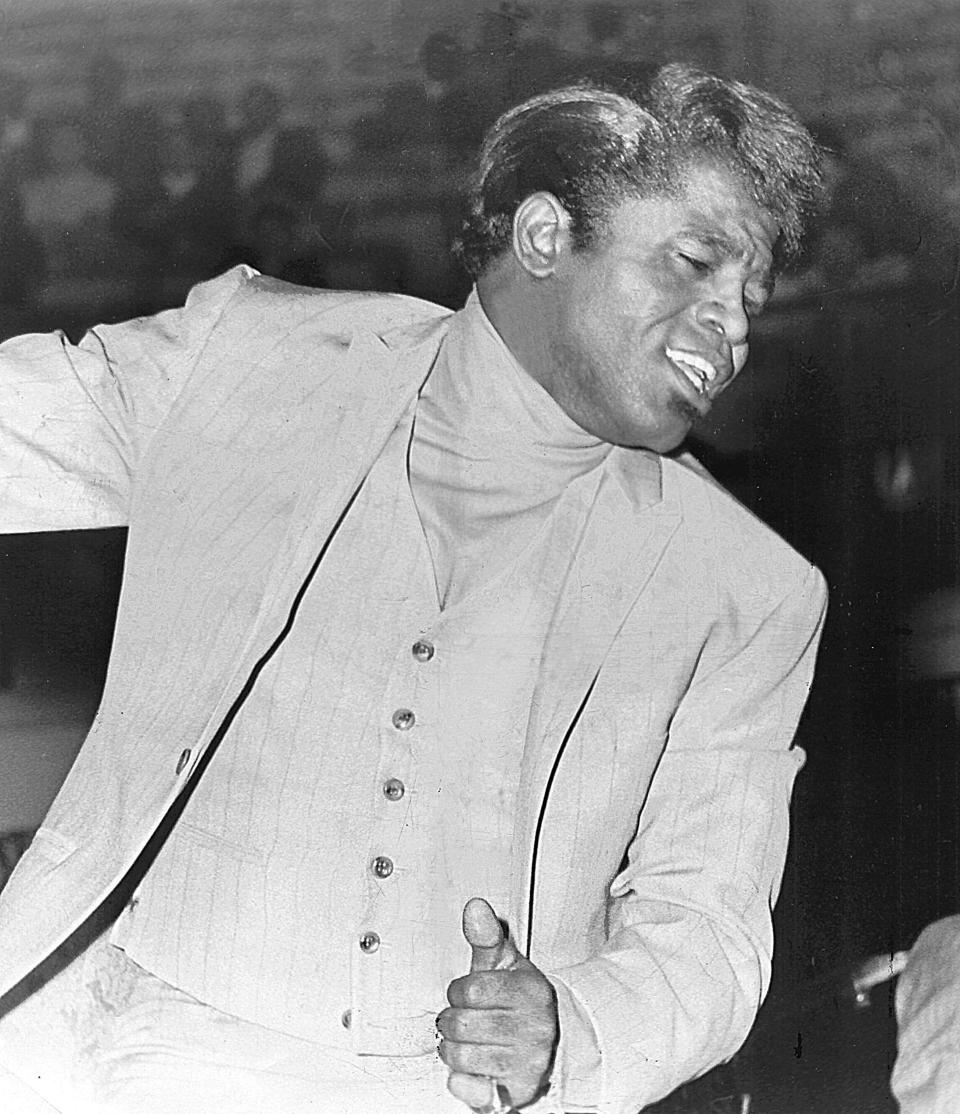
This Black pride anthem is somehow every bit as funky as it is empowering. And it is pretty damn empowering. But this is James Brown in his prime as a trailblazing funk pioneer. Of course it's funky, complete with a crowd-pleasing chorus set up as a spirited call and response between the legend and his backup singers for the day, a group of young children. "Say it loud," he demands. "I'm Black and I'm proud," they respond. Brown pulls no punches here, setting the tone for the first verse with "Some people say we've got a lot of malice / Some say it's a lot of nerve / But I say we won't quit moving until we get what we deserve." But the record's most quotable moment comes later, when he rhymes, "We're people; we like the birds and the bees" with "We'd rather die on our feet than be living on our knees."
2. The Impressions, 'People Get Ready'
No lesser an authority than Martin Luther King, Jr. named this Curtis Mayfield gospel song the unofficial anthem of the civil rights movement, even though the lyrics don't address the state of race relations as explicitly as other songs that may be vying for that title. There's a reason King so often turned to Mayfield's message of deliverance with its promise of a train a-comin' to motivate his fellow marchers. Whether you believe that train for which "you don't need no ticket; you just thank the Lord" is bound for heaven (the most likely destination) or a better life on earth, there's no doubt many listeners found it easy to imagine their oppressors in the verse that starts, "There ain't no room for the hopeless sinner who would hurt all mankind just to save his own."
1. Sam Cooke, 'A Change is Gonna Come' (1964)
First performed in February 1964 on "The Tonight Show Starring Johnny Carson," this civil rights anthem draws much of its timeless appeal from the power of Sam Cooke's impassioned delivery, underscored by gorgeous orchestration. You can feel him feeling every word. Although it only briefly touches on discrimination ("I go to the movie and I go downtown / Somebody keep telling me ‘don't hang around'"), it couldn't be more obvious what kind of change he's after when he hits you with that gospel-flavored chorus of "It's been a long, a long time comin' but I know a change gonna come / Oh yes it will." The song was partially inspired by an incident in which Cooke and his bandmates tried to register at a "whites only" motel in Shreveport, Louisiana, and partially inspired by Bob Dylan's "Blowin' in the Wind."
Reach the reporter at [email protected] or 602-444-4495. Follow him on Twitter @EdMasley.
Support local journalism. Subscribe to azcentral.com today.
This article originally appeared on Arizona Republic: 25 songs for Black History Month: James Brown, Billie Holiday and more
